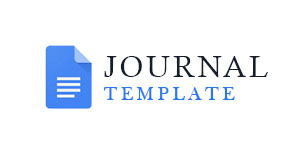Islamic Financial Literacy in Islamic Boarding Schools and Its Implications for the Preference of Islamic Financial Institutions
Abstract
Abstract
This study aims to measure the level of financial literacy, analyze the influence of Islamic financial literacy levels on the preferences of Islamic financial institutions and estimate the impact of Islamic financial literacy among Islamic Boarding Schools on preferences and implications for Islamic Financial Institutions in Region III Cirebon. The method used is quantitative with mutinomial logistic regression analysis techniques. The data was collected using questionnaires from the population and the sample was among islamic boarding schools, both managers and students. The results of this study show that personal financial management literacy and Islamic economic literacy have an effect of 45% on Islamic banking preferences, 33% on sharia insurance preferences, and 29% on Islamic capital market preferences. This condition is in line with the results of measurements of Islamic financial literacy of islamic boarding school managers and students in the category of good literacy (well literate) in personal financial management and the category of sufficient literacy in the Islamic economy. The lowest is their literacy regarding sharia insurance of 25% and 29% (less literate) for the Islamic capital market.
Keywords: Islamic Financial Literacy, Islamic Boarding Schools, Islamic Financial Institutions
Full Text:
PDFReferences
References Adiyanto, M. R., Purnomo, A. S. D., & Setyo, A. (2021). Dampak tingkat literasi keuangan syariah terhadap minat menggunakan produk keuangan syariah. Jurnal Administrasi Kantor, 9(1), 1–12. Auditya, L. (2019). Peran Galeri Investasi Syariah Bursa Efek Indonesia (GIS BEI) Iain Bengkulu Dalam Meningkatkan Literasi Pasar Modal (Studi Kasus Masyarakat Sumur Dewa Air Sebakul). Al-Intaj : Jurnal Ekonomi dan Perbankan Syariah, 5(2), 286. https://doi.org/10.29300/aij.v5i2.2060 Fisher, P. J., & Yao, R. (2017). Gender differences in financial risk tolerance. Journal of Economic Psychology, 61, 191–202. Ghozali, I. (2016). Metode Penelitian: Teori Aplikasi Analisis Multivariate dengan Program SPSS. Harrison, T. (2016). Financial literacy and the limits of financial decision-making. Springer. Ismanto, K. (2018). Literasi Masyarakat dan Dampaknya terhadap Minat Menjadi Nasabah Bank Syariah. 5(1). Jamaluddin, M. (2012). Metamorfosis pesantren di era globalisasi. KARSA: Journal of Social and Islamic Culture, 127–139. Kemu, S. Z. (2016). Literasi pasar modal masyarakat indonesia. 21(2). Kurniawati, J., & Baroroh, S. (2016). Literasi media digital mahasiswa universitas muhammadiyah bengkulu. Jurnal Komunikator, 8(2), 51–66. Lestari, S., & Mukaromah, H. (2019). Literasi Keuangan Syariah Pengelola Koperasi Pondok Pesantren An-Nawawi Kec. Gebang, Kab Purworejo. An-Nawa: Jurnal Studi Islam, 1(1), 61–87. Lusardi, A., & Mitchell, O. S. (2011). Financial literacy around the world: An overview. Journal of Pension Economics & Finance, 10(4), 497–508. Lusardi, A., & Mitchell, O. S. (2023). The Importance of Financial Literacy: Opening a New Field. National Bureau of Economic Research. Misnatun, M. (2022). Pendidikan Pondok Pesantren Era Revolusi Industri 4.0. Ta’dib, 12(1), 28–34. Nasution, S., Ritonga, R., Ikbal, M., Siregar, P., & Akhyar, A. (2021). Pendampingan Literasi Perguruan Tinggi Pada Santri Pondok Pesantren Darussalam Parmeraan Padang Lawas Utara. MONSU’ANI TANO Jurnal Pengabdian Masyarakat, 4(1). Nurrohmah, R. F., & Purbayati, R. (n.d.). Pengaruh tingkat literasi keuangan syariah dan kepercayaan masyarakat terhadap minat menabung di bank syariah. Pramudya, R. M., & Rahmi, M. (2022). Pengaruh Literasi Asuransi, Religiusitas, dan Kualitas Pelayanan terhadap Minat Generasi Milenial Menggunakan Asuransi Syariah. Journal of Islamic Economics and Finance Studies, 3(1), 70. https://doi.org/10.47700/jiefes.v3i1.4350 Qomaro, G. W. (2019). Pesantren As Halal Tourism Co-Branding: Halal Industry for Sustainable Development Goals. Maqdis: Jurnal Kajian Ekonomi Islam, 4(1), 11–22. Rahmawati, S., & Nurkhin, A. (2022). Faktor-Faktor yang Mempengaruhi Literasi Keuangan Syariah pada Santri dengan Pendidikan Keuangan Keluarga sebagai Variabel Moderasi. Business and Accounting Education Journal, 3(2). Ramadhani, D. F., & Cahyono, H. (2020). Pengaruh Literasi Keuangan Syariah Terhadap Rencana Investasi Di Pasar Modal Syariah Pada Mahasiswa Ekonomi Islam Di Surabaya. Jurnal Ekonomika dan Bisnis Islam, 3(2), 56–71. https://doi.org/10.26740/jekobi.v3n2.p56-71 Rasyid, H. (2012). Peran pesantren dalam pengembangan ekonomi islam. kertas kerja dalam seminar ekonomi Outlook. Remund, D. L. (2010). Financial literacy explicated: The case for a clearer definition in an increasingly complex economy. Journal of Consumer Affairs, 44(2), 276–295. Rinaldi, A., & Devi, Y. (2022). Pengaruh Literasi Keuangan Syariah Terhadap Kepercayaan Muzakki Pada Lembaga Pengelola Zakat Dengan Akuntabilitas dan Transparansi Sebagai Variabel Intervening. Al-Mal: Jurnal Akuntansi Dan Keuangan Islam, 3(1), 87–110. Rizal, M., Mustapita, A. F., Kartika Sari, A. F., Fakhriyyah, D. D., & Taqwiem, A. (2022). Sosialisasi, Literasi dan Implementasi Produk Perbankan Syariah. Kaibon Abhinaya : Jurnal Pengabdian Masyarakat, 4(1), 8–17. https://doi.org/10.30656/ka.v4i1.3514 Rodiyah, F. (2019). Korelasi Pengetahuan Investasi, Literasi Keuangan, Pelatihan Pasar Modal dan Minat Mahasiswa Berinvestasi di Galeri Investasi Syariah. Jihbiz : jurnal ekonomi, keuangan dan perbankan syariah, 3(1), 17–37. https://doi.org/10.33379/jihbiz.v3i1.786 Sari, D. L., Pujiati, P., & Putri, R. D. (2020). Literasi Keuangan Mahasiswa Ditinjau dari Gender, Teman Sebaya, dan Pembelajaran Kewirausahaan. Economic Education and Entrepreneurship Journal, 3(1), 1–9. https://doi.org/10.23960/E3J/v3i1.1-9 Silalahi, P. R., Syahputri, R. R., Prayoga, R., & Meianti, A. (2022). Pentingnya Literasi Keuangan Bagi Masyarakat Agar Tidak Tertipu Investasi Bodong: Studi Kasus Binomo. El-Mujtama: Jurnal Pengabdian Masyarakat, 2(3), 346–355. Tambunan, D., & Hendarsih, I. (2022). Waspada Investasi Ilegal di Indonesia. Perspektif: Jurnal Ekonomi Dan Manajemen Akademi Bina Sarana Informatika, 20(1), 108–114. Zokaityte, A. (2016). Financial literacy and numeracy of consumers and retail investors. Capital Markets Law Journal, 11(3), 405–413. https://doi.org/10.1093/cmlj/kmw014 Zuhirsyan, M., & Nurlinda, N. (2018). Pengaruh Religiusitas dan persepsi nasabah terhadap keputusan memilih Bank Syariah. Al-Amwal: Jurnal Ekonomi Dan Perbankan Syari’ah, 10(1), 48–62.
DOI: https://doi.org/10.24952/tijaroh.v9i1.6881
Refbacks
- There are currently no refbacks.
Copyright (c) 2023 At-tijaroh: Jurnal Ilmu Manajemen dan Bisnis Islam

This work is licensed under a Creative Commons Attribution-ShareAlike 4.0 International License.














